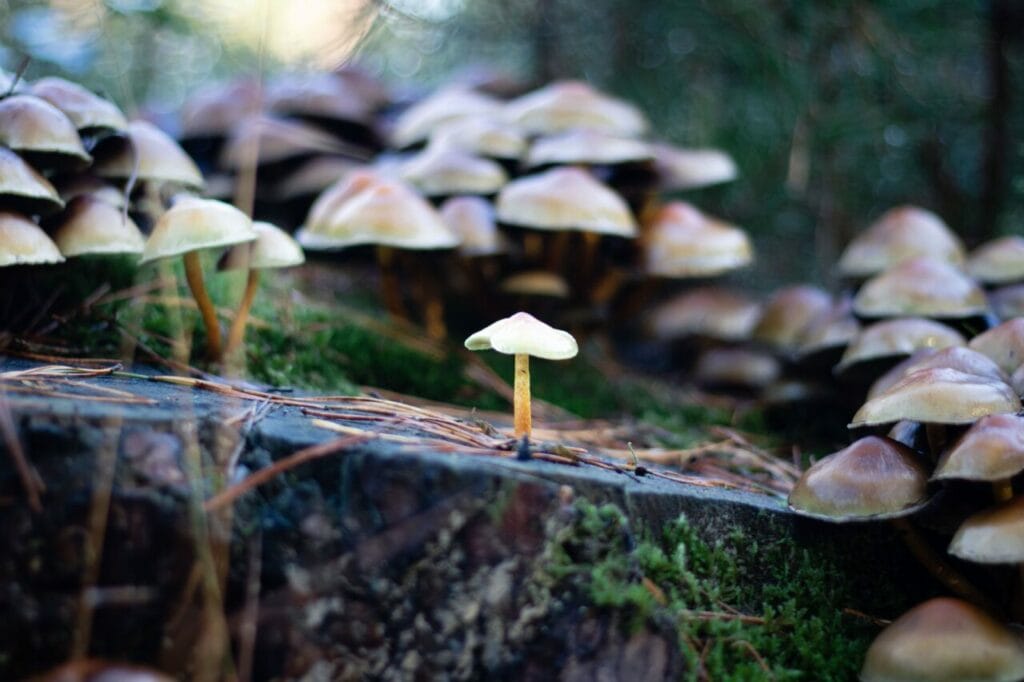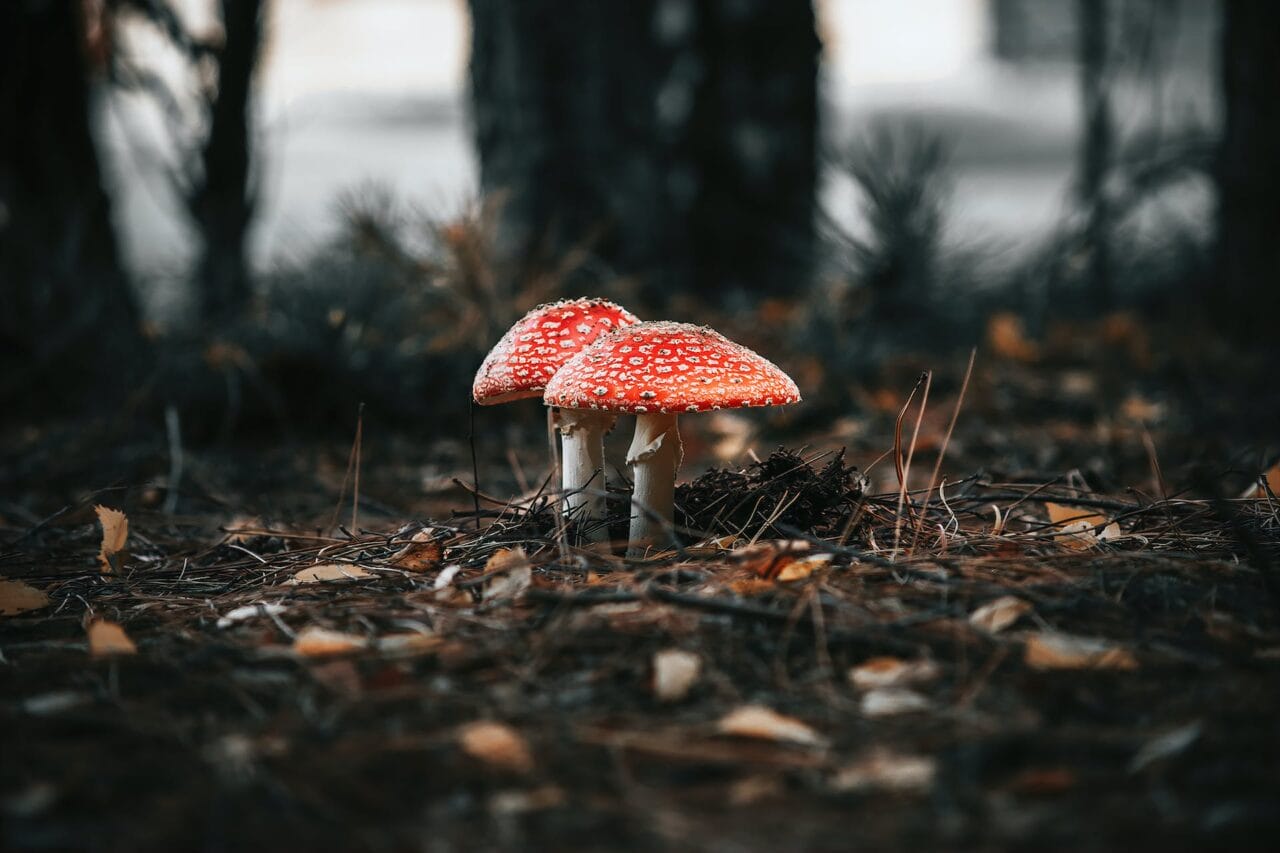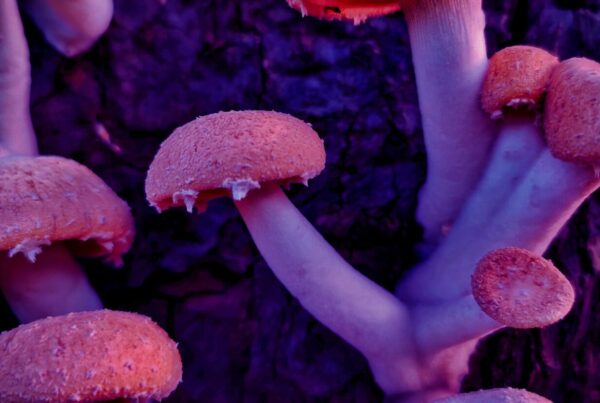Interest in psilocybin is escalating, driven by investigations into its potential benefits for mental health conditions such as anxiety and addiction. Yet, acquiring psilocybin remains a challenge. There are limited laboratories and magic mushroom delivery services, and the associated costs can be fairly high.
This piece will delve into the evolution of psilocybin, its current status, and the prospective advantages it could offer those in search of relief.
[toc]Key Takeaways:
- Considerable effort and careful monitoring are required to grow mushrooms and avoid contamination during the inoculation phase.
- Psilocybin produces a psychedelic effect by interacting with different brain areas, particularly the serotonin receptors.
- Psilocybin only marginally increases the heart rate, which quickly returns to normal after consumption, and generally does not lead to any other negative effects.

Delivering Only Top-Quality Magic Mushrooms
Magic mushrooms naturally grow in diverse environments including fertile pastures, deciduous forests filled with leaves, grasslands, and woodlands. Over time, people have ventured into these areas to collect these fungi for medicinal purposes or for use in spiritual and religious practices.
Conventional Approach
Currently, the traditional practice of searching for mushrooms in these natural habitats is less common. This shift might be due to the advent of other methods like cultivation or the possibility of buying magic mushrooms online.
Wild mushrooms are usually less potent than their lab-grown equivalents, which are carefully grown under regulated conditions. Moreover, foraging in the wild carries the risk of accidentally picking a poisonous species.
Contemporary Approach
The shroom production process starts with a complex procedure to grow spores to maturity, requiring a
Meticulous attention and a significant amount of time are invested to prevent any potential contamination during the phase of inoculation. Once ready for harvest, the mushrooms are usually dried by labs or cultivators to extend their shelf life. While fresh mushrooms only remain viable for a few days, dried ones can be stored for several months, even up to a year.
Manufacturers transform the dried mushrooms into a range of product forms. These consist of microdose capsules, edibles, tinctures, and beverages, which are subsequently distributed across Canada through magic mushroom delivery services.
Harnessing the Advantages of Psilocybe Cubensis or Magic Mushrooms
The main motivation for conducting clinical trials on mushrooms for researchers is to investigate their impact on mental health and mood disorders, based on anecdotal evidence. Numerous studies are exploring these effects, from microdosing with capsules to undergoing a mushroom journey with dried mushrooms or chocolate edibles.
Upon ingestion, Psilocybin is metabolized into psilocin. This compound behaves similarly to serotonin, a neurotransmitter critical for mood regulation. It interacts with several brain areas, particularly the serotonin receptors, to initiate a psychedelic journey.
Psilocybin therapy participants often report profound transformations that extend beyond sensory enhancement and visual modifications. These experiences can result in a substantial shift in self-perception and a deep change in personal perspective, usually marked by profound realizations.
Depression and Suicidal Thoughts
A study published in the Journal of Psychopharmacology examined the effects of a psychedelic experience on individuals grappling with depression and suicidal thoughts. Most participants deemed their psilocybin experience as highly significant and highlighted its potential life-changing impact. Such levels of satisfaction could potentially boost the effectiveness of therapy, given the critical role of patient engagement in mental health interventions.
Safety Profile
Besides studying the impact of psilocybin on depression and anxiety, researchers also scrutinize the safety profile of this substance. According to a JAMA Psychiatry study, participants administered with psilocybin displayed a slight elevation in heart rate and blood pressure two hours post-ingestion. However, further analysis using Holter monitoring revealed no significant increase in the risk of cardiac arrhythmias in the psilocybin group compared to the niacin group. The study also discovered
No observed psychological harm in users.





